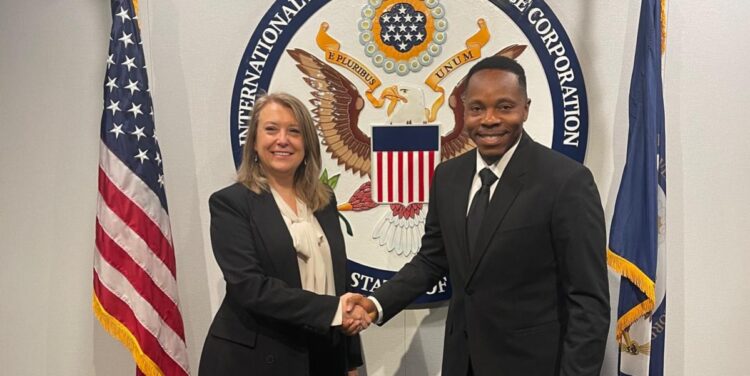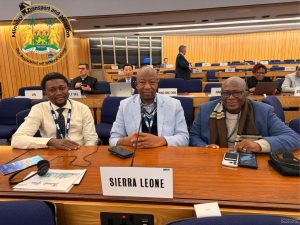Celebrating Cultural Exchange Insights from the UN Tourism Africa and Americas Summit

At the inaugural UN Tourism Africa and Americas Summit, which opened in Punta Cana, Dominican Republic, our esteemed Minister of Tourism and Cultural Affairs, Madam Nabeela Tunis, delivered a powerful statement emphasizing the critical importance of bridging the two continents. This summit serves as a pivotal moment for fostering collaboration and mutual growth between Africa and the Americas, and Madam Tunis congratulated the Dominican Republic for its efforts in uniting these diverse regions through this significant platform.
During her address, Madam Tunis expressed heartfelt gratitude for the warm hospitality extended to the Sierra Leone delegation. She took a moment to thank Minister Collador and his dedicated team for organizing this landmark summit, which brings together leaders, stakeholders, and influencers from both continents. Recognizing the transformative work of the Secretary-General and his team, she highlighted their commitment to making the tourism landscape more inclusive and diverse, especially in the wake of the COVID-19 pandemic, which had devastating impacts on the global tourism sector. She underscored the urgent need for strategies that will not only accelerate recovery but also align with the Sustainable Development Goals (SDGs), ensuring a more equitable and sustainable future for tourism.
Minister Tunis emphasized the profound cultural ties that exist between Africa and the Americas, particularly from Sierra Leone’s unique historical perspective. She poignantly noted the impact of the transatlantic slave trade, which forcibly brought millions of Africans to the Americas, significantly shaping the identities, cultures, and traditions of both regions. “Sierra Leone holds a significant place in this history, as many who were taken to the Americas originated from what is now Sierra Leone,” she stated, inviting attendees to explore and reconnect with their shared heritage. She encouraged them to visit Bonthe Island and the Rotumba Slave Fort, both historical sites that offer meaningful insights into the past and opportunities for cultural exchange.
Continuing her address, Minister Tunis highlighted the rich cultural exchange that emerged from the slave trade, illustrating how African traditions, languages, and customs intertwined with those of indigenous peoples and European settlers. This blending of cultures gave rise to unique cultural expressions that enrich both regions today. She pointed out the influence of African languages, particularly noting how they can be seen in the Creole languages spoken in the Caribbean and various ports in the Americas. Notably, Sierra Leone boasts its own unique Creole language, which is widely spoken across the country, serving as a testament to its vibrant cultural heritage.
Madam Tunis also underscored the lasting impact of African musical rhythms and styles on various music genres, including jazz, blues, samba, reggae, and hip-hop—art forms that continue to resonate deeply across the Americas. She highlighted how these musical traditions serve as a bridge, connecting people through shared experiences and histories. In addition, she addressed the influence of African spiritual practices, which have contributed to the creation of syncretic religions in the Americas, reflecting the resilience and adaptability of African cultures.
Furthermore, she spoke about the culinary connections that bind the two continents, noting how African ingredients and cooking techniques have enriched the culinary traditions of the Americas. Many dishes served in the Americas reflect a shared heritage, showcasing the flavors and culinary practices that have transcended borders.
In her remarks, Minister Tunis also highlighted the linguistic and literary ties that exist between the continents, noting how African languages have influenced Creole languages in the Caribbean and parts of the Americas. She mentioned that Trinidad and Tobago features a place named Freetown, alongside Sierra Leone Road in Diego Martin, further illustrating these deep-rooted connections that continue to endure across generations.
Madam Tunis’s dynamic statement at the first UN Tourism Africa and Americas Summit resonated with themes of heritage, culture, and cooperation. Her call to action encourages ongoing dialogue and collaboration to strengthen ties between Africa and the Americas. We invite you to watch the full video to experience her inspiring address and to engage with the ongoing discussions about fostering connections between these two rich and diverse continents.








